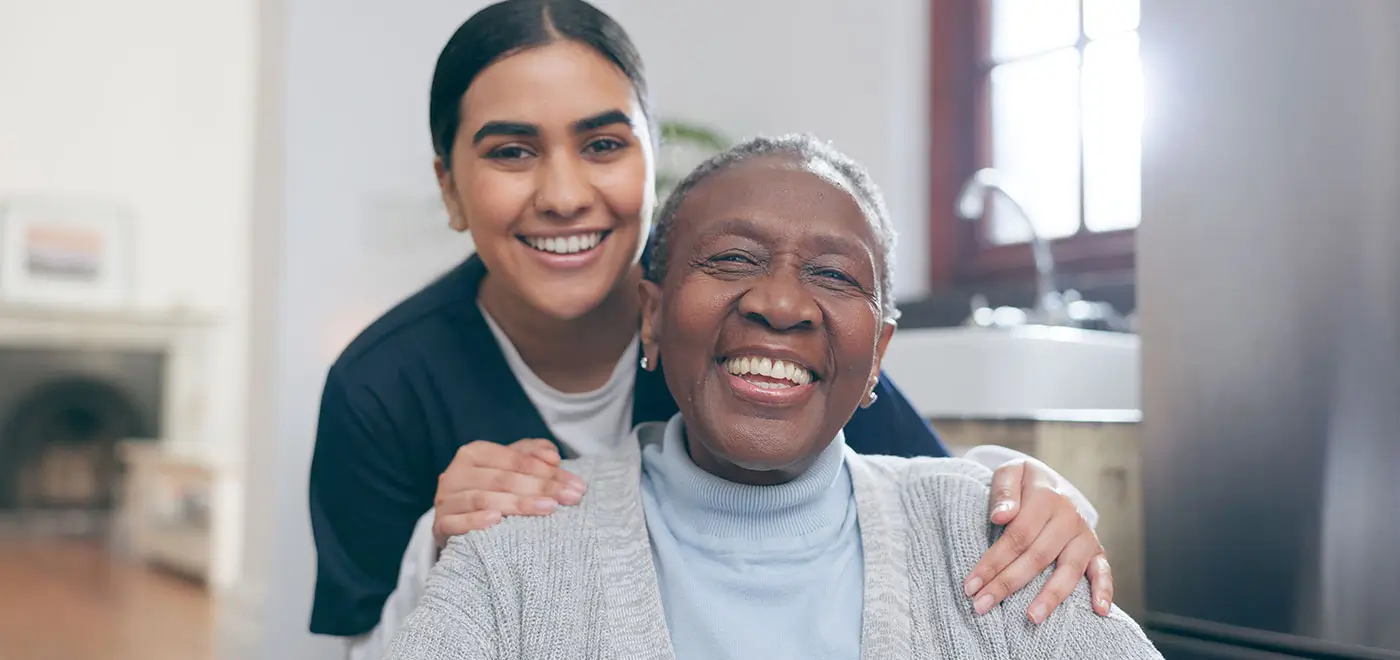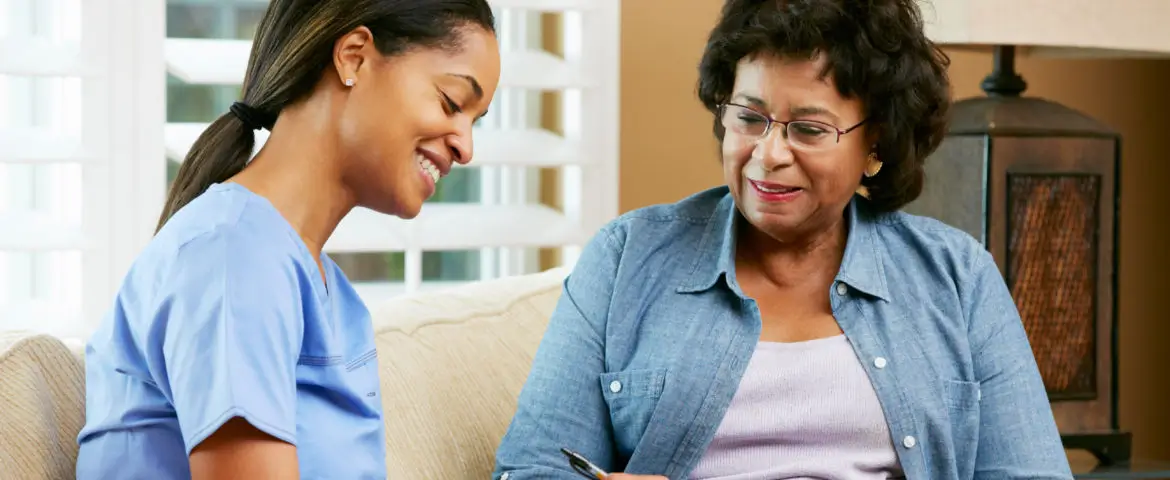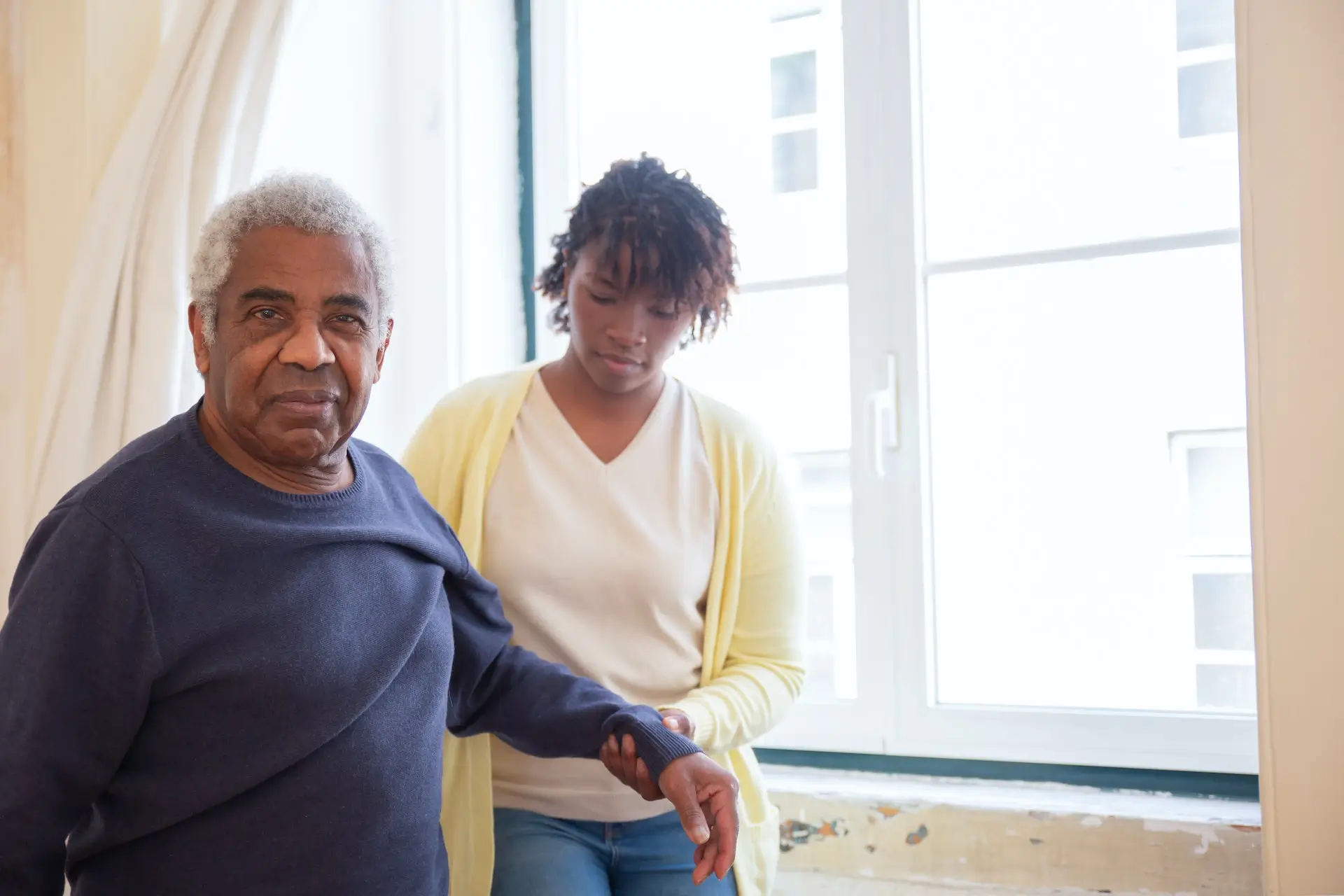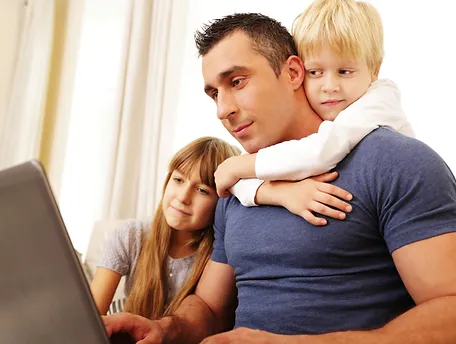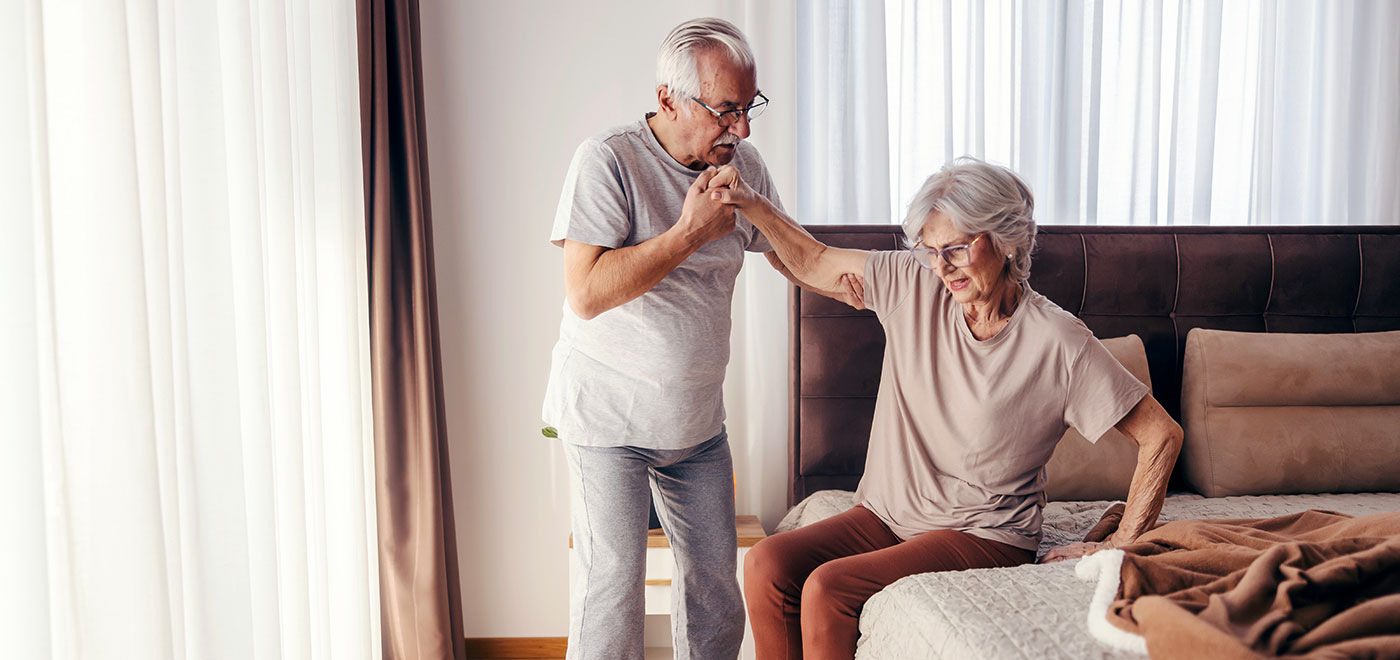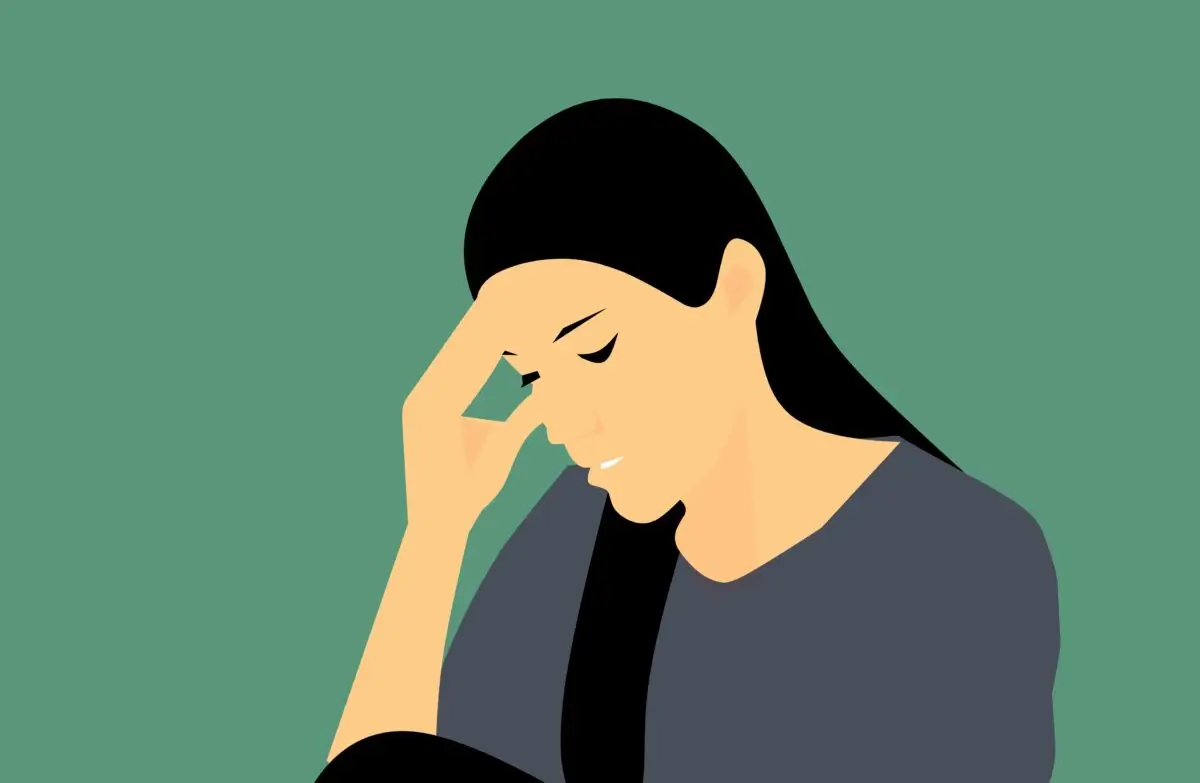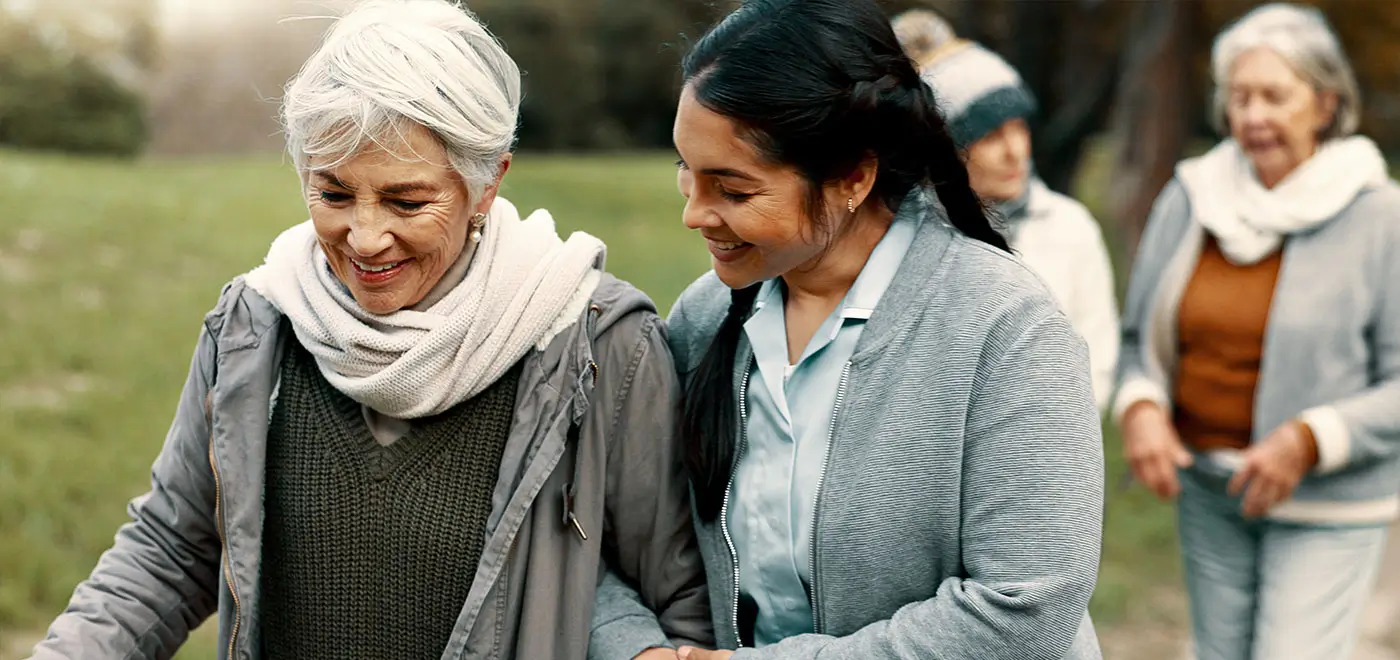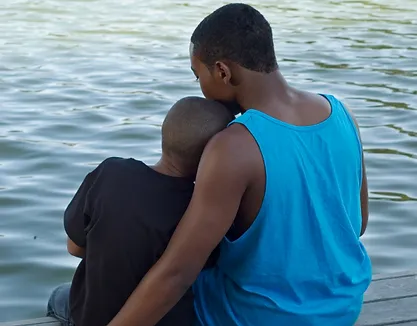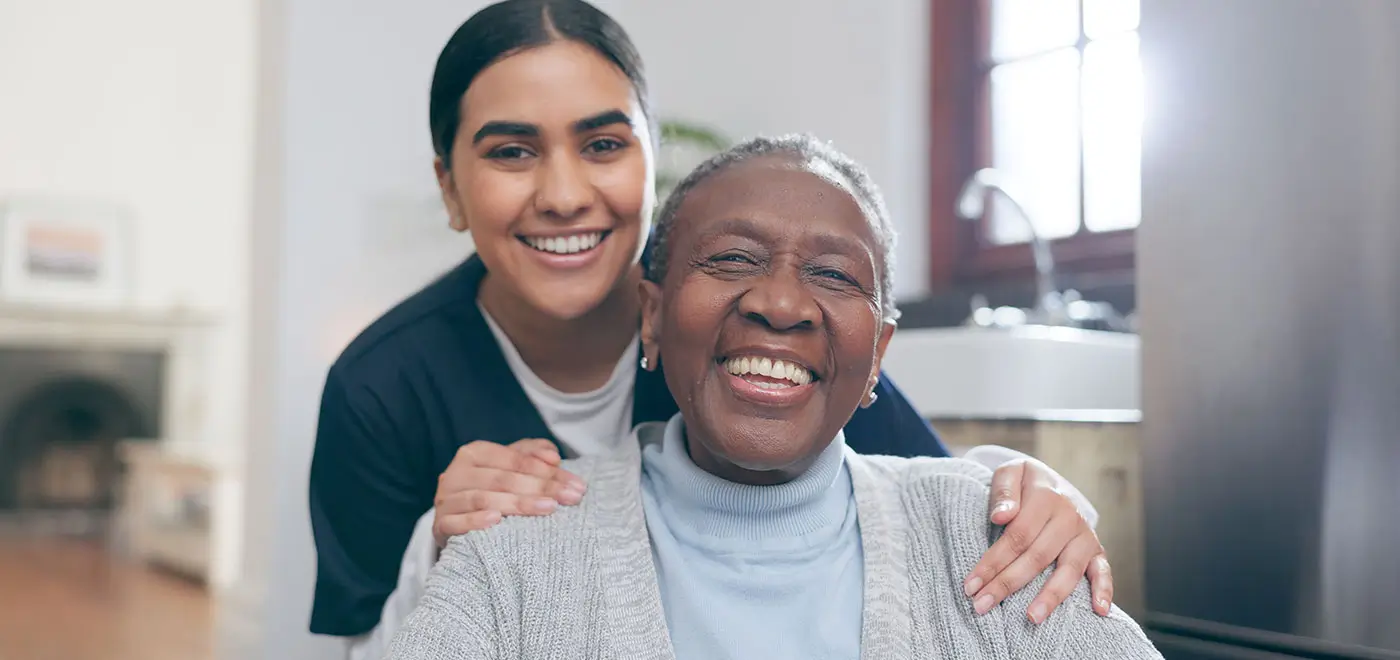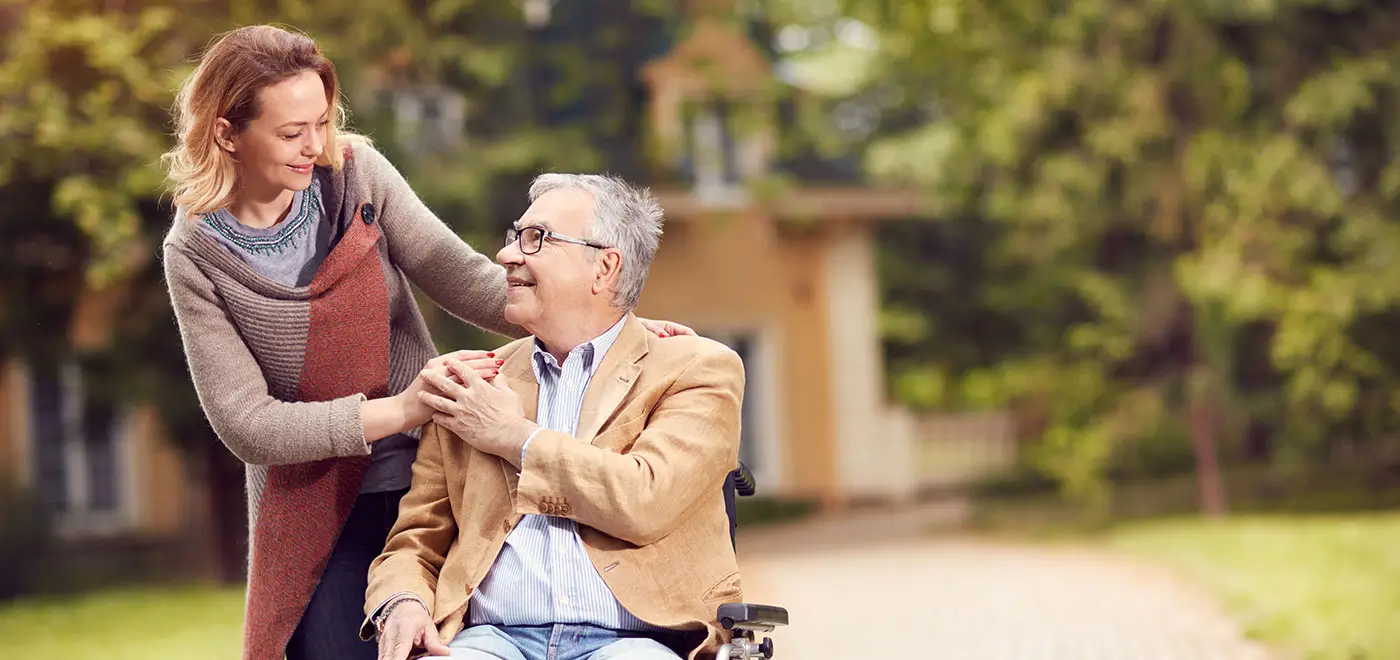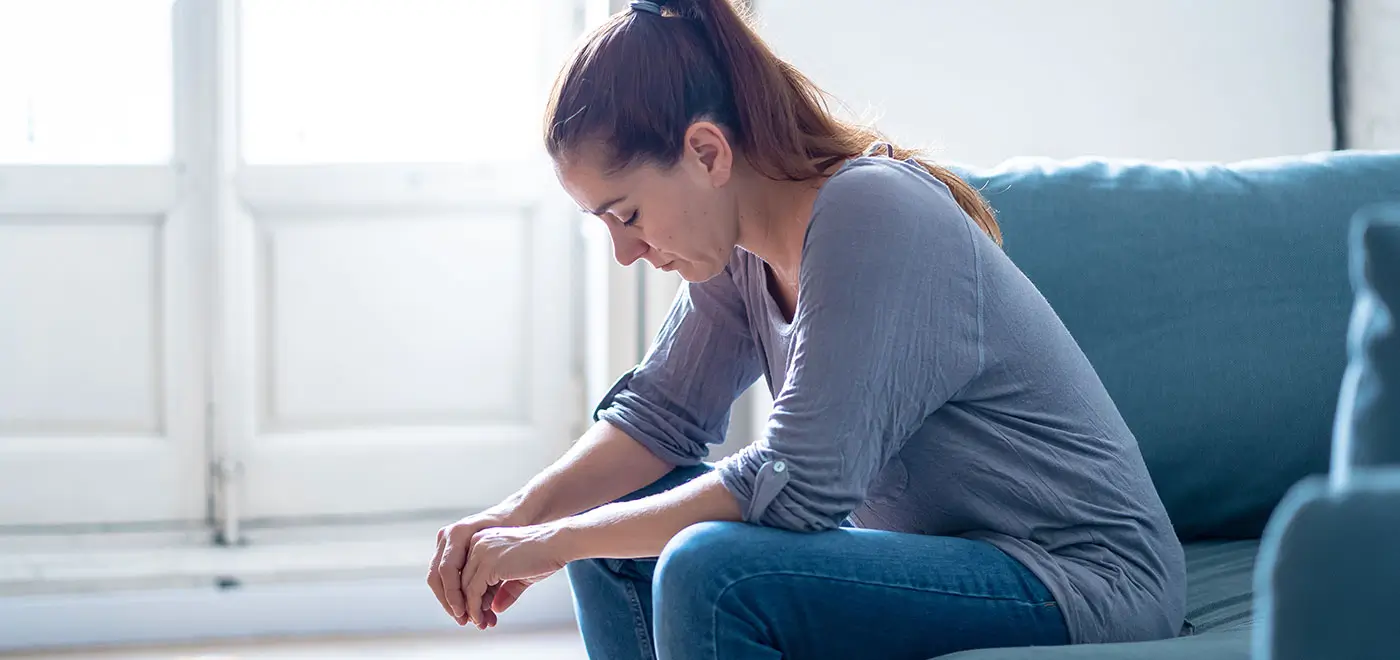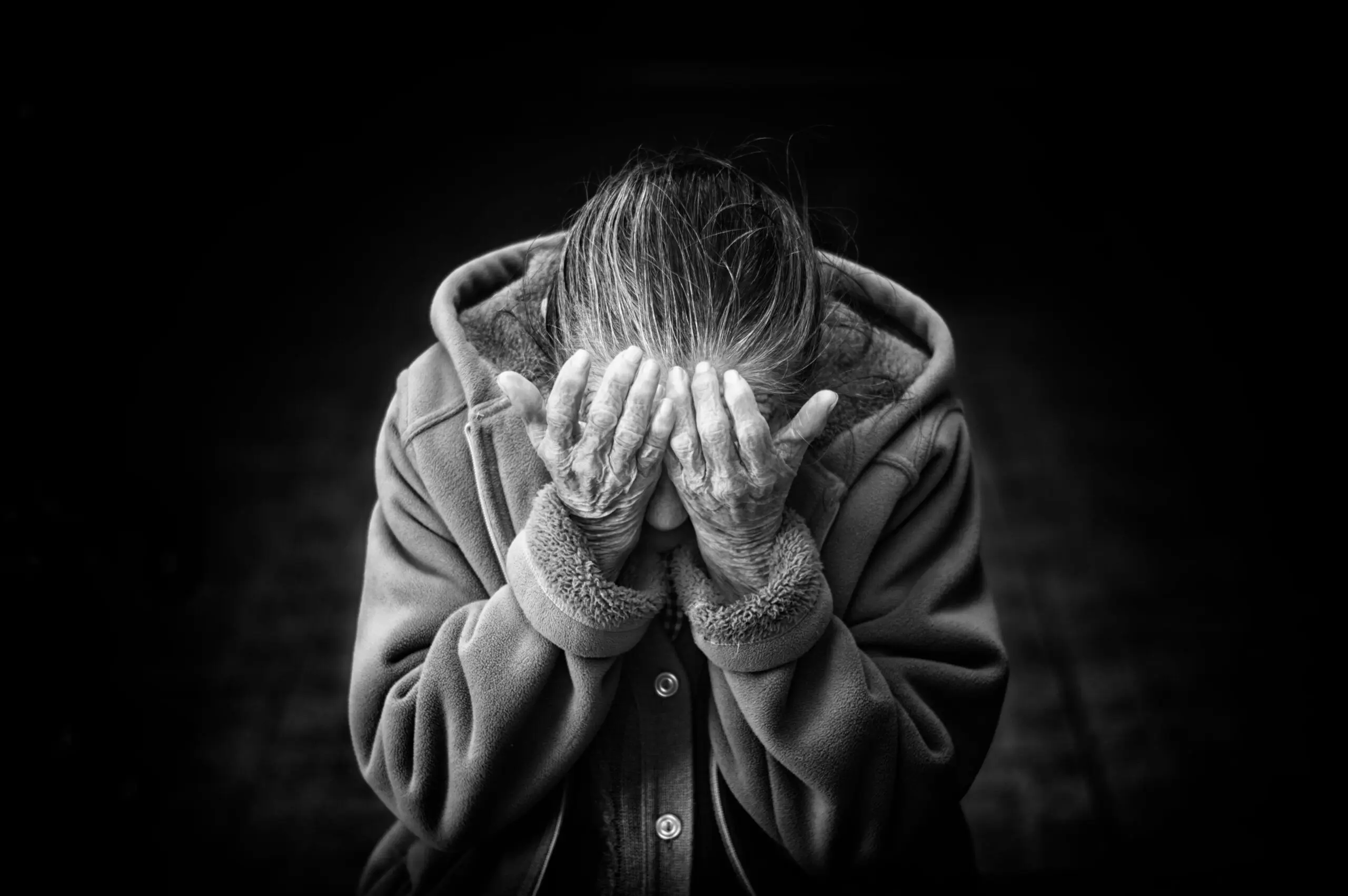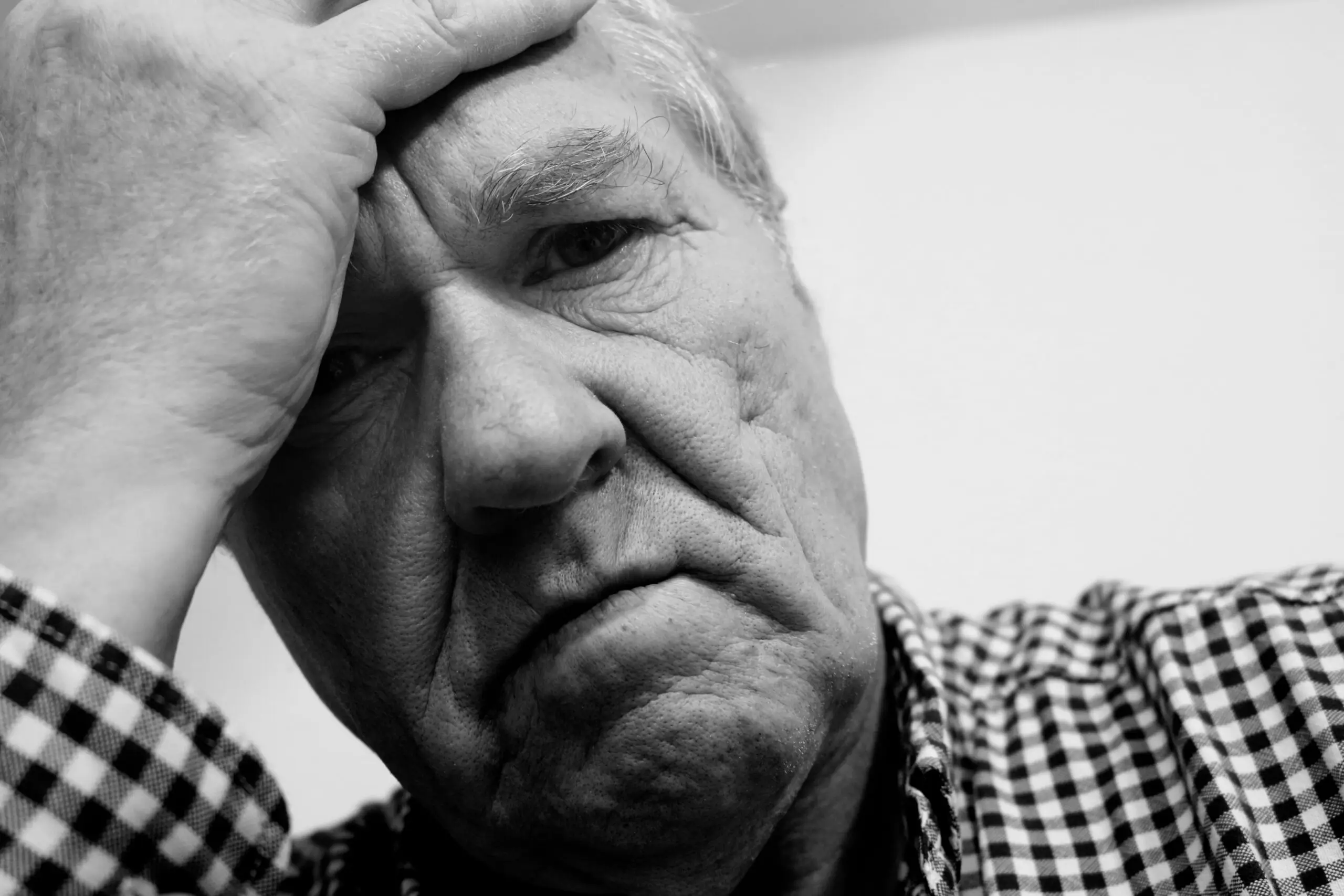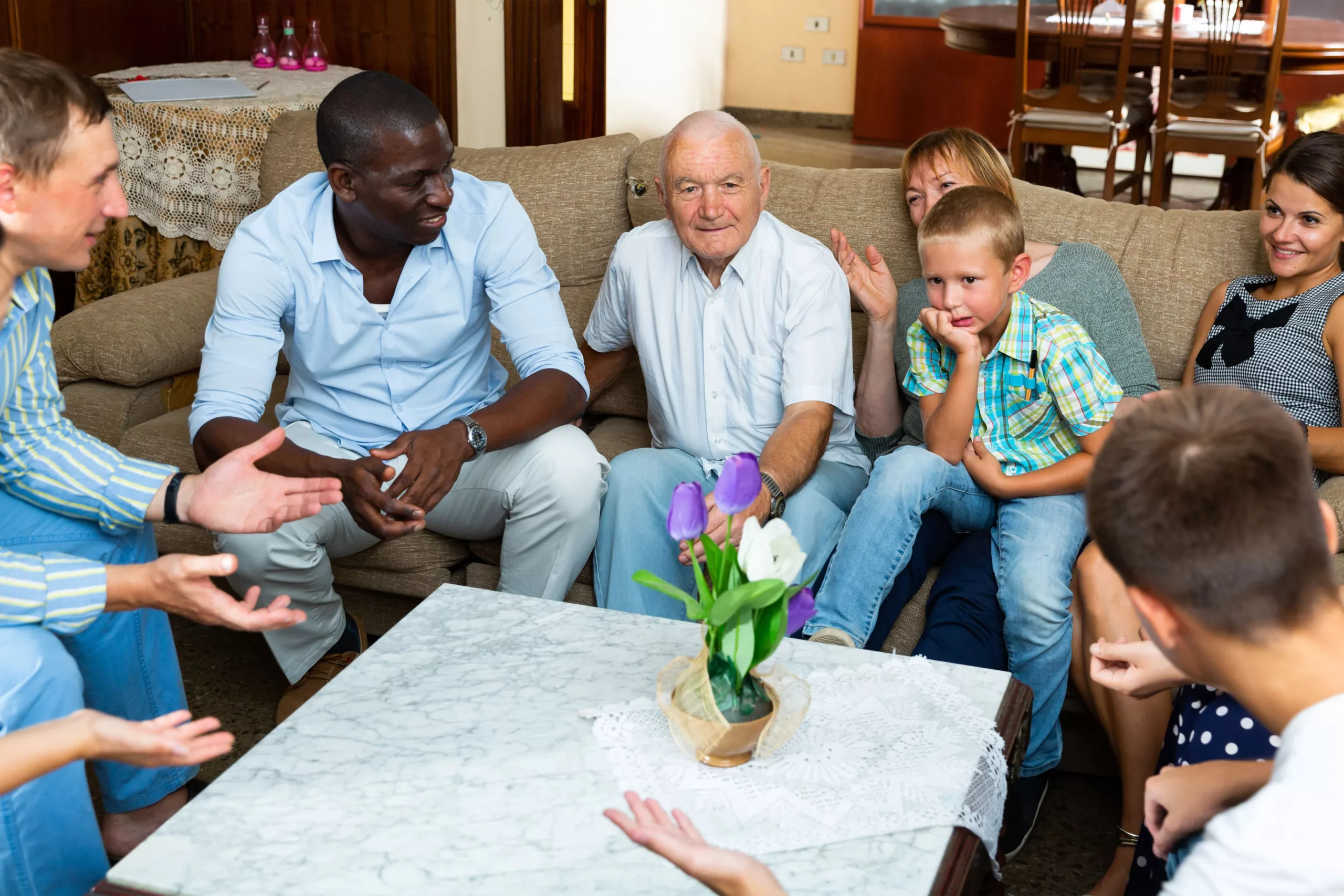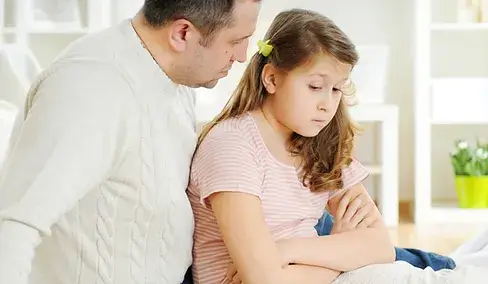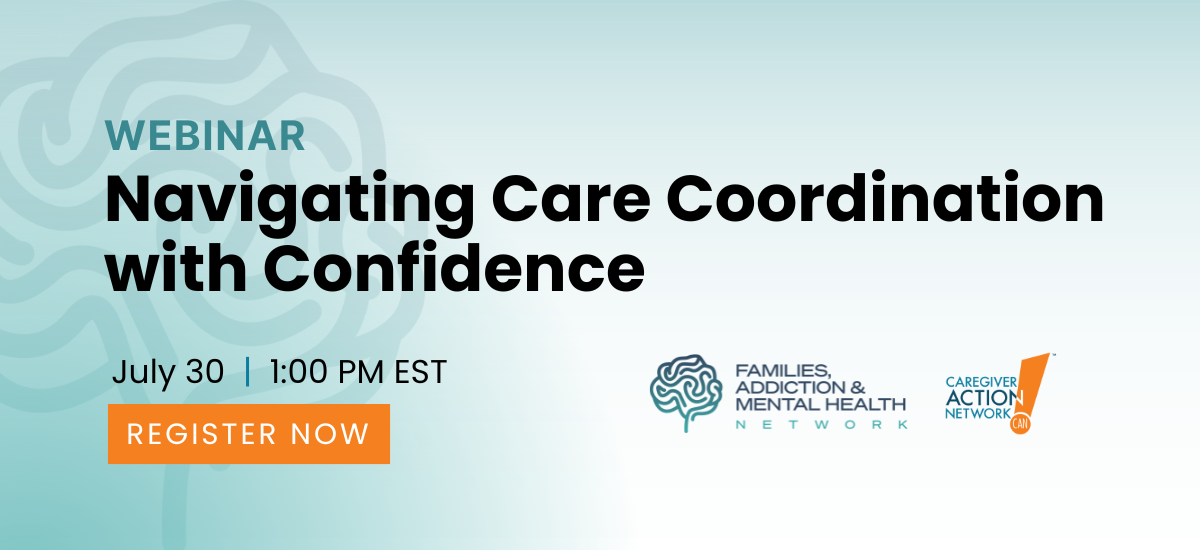Caring for Rare Disease Caregivers
Caring for Rare Disease Caregivers
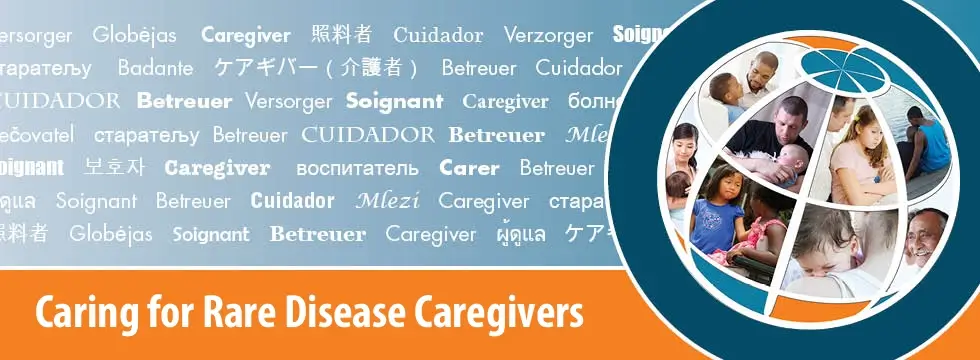
Resources for Family Caregivers of Loved Ones with Rare Diseases
As any family caregiver knows, your commitment to your loved one is beyond question. Whether you’ve been providing care for a month, a year, or a decade, you’ve clearly dedicated yourself to ensuring that your loved one has the best home care and quality of life possible for as long as possible. However, in any [...]
As a family caregiver, have you ever wished for professional guidance in coordinating your loved one's care? While you may not be a professional care manager, learning their strategies can transform your caregiving journey. Understanding care management for family caregivers can help you organize, coordinate, and provide better care while maintaining your own well-being. [...]
In the event of a medical crisis, caregivers play a critical role in accurately observing and reporting symptoms. This guide offers a Caregiver Crisis Guide for monitoring symptoms and communicating effectively with healthcare professionals, which can be essential to ensuring swift and appropriate medical attention. Keep this Medical Emergency Symptom Checklist on hand to [...]
Download Doctor Visit Checklist PDF Managing medical appointments is a crucial part of caregiving, ensuring that you and your care recipient are on the same page regarding health management. An effective Caregiver Doctor Visit Checklist helps streamline this process, making doctor’s visits more productive and less stressful. This checklist allows caregivers to better prepare [...]
Maintaining a well-organized patient file is one of the most crucial tasks you can undertake as a caregiver. A comprehensive patient file ensures you have quick and efficient access to essential information about the person you care for. This organization helps in routine medical appointments and becomes critical in emergencies when every second counts. [...]
Download Medication Checklist - Word Download Medication Checklist - PDF Descargar la lista de verificación de medicamentos - Word Descargar la lista de verificación de medicamentos - PDF Importance of Medication Management for Caregivers An up-to-date medication list is an important tool for the family caregiver and your [...]
Technology for Family Caregivers Family caregiving can be one of life’s most rewarding experiences. At the same time, the role you play in keeping your loved one safe and comfortable at home involves significant responsibilities. It also introduces pressures that can be demanding to manage. On any given day, you juggle countless demands, from utilizing [...]
Caregiver Action Network, previously known as the National Family Caregivers Association, is proud to present "Communicating Effectively with Healthcare Professionals." Welcome to NFCA’s Communicating Effectively with Healthcare Professionals program. NFCA educates, supports, empowers, and speaks up for millions of Americans who care for loved ones with chronic illnesses, disabilities, or the frailties of [...]
As a family caregiver, your health and well-being is important. But how can you find ways to care for yourself and juggle your role as a caregiver? These tips offer you can use on daily basis to make your tasks easier and make sure you’re not neglecting your own needs. *Para ver estos consejos [...]
You have heard this message time and time again: As a family caregiver, you must take care of your own health so you can be strong enough to take care of your loved one. But we know how hard it is for you to find the time. This is especially true of rare disease caregivers because caregiving for your loved one is often needed around the clock. Thankfully, there are tips and tools available to help you avoid burnout and maintain some sense of balance in your life!
Help and support are crucial for caregivers. Ask for assistance from family, friends, and professionals to lighten the load. Ask for help and accept it. Set up respite care on a regular basis. Make a list of all the support people that are able to help you out, such as other children, parents, neighbors, [...]
Effective time management is crucial for caregivers. Prioritize tasks, delegate effectively, and carve out personal time to maintain balance and efficiency throughout your caregiving journey. Use your high-energy time of day to organize what you need to get done and work on it so that you are in charge of your day. Focus on [...]
To effectively manage caregiving responsibilities and nurture your well-being, implement these essential tips for health: stay active throughout the day and prioritize tasks.Activity: If you are at home with your loved one and s/he takes a nap, try and take one then, too, but for no more than half an hour. Ask someone that [...]
Here are some tips that other people have found helpful for not getting enough sleep: Establish a sleep routine by going to bed and getting up at the same time. Schedule your sleep schedule around your loved one’s sleep schedule, if possible. If they take a nap during the day, take a short nap [...]
When was the last time you had to lift your loved one out of bed or a chair? Did it make you wonder if you were going to end up in bed yourself with a bad back? Because caregiving can be such a strenuous physical activity, learning proper body mechanics for caregivers is essential [...]
Recognizing the need for help as a family caregiver can be a challenging but essential step in maintaining both your health and that of your loved ones. Many caregivers carry the weight of managing daily tasks, offering emotional support, and often dealing with financial strain, but trying to handle everything alone can lead to [...]
Caregiving can be a rewarding but also exhausting journey, especially for those who are taking care of loved ones with rare diseases. One of the most common challenges caregivers face is asking for help. As you juggle the daily responsibilities of caregiving, you may find yourself thinking, "If only I had some help." Yet, [...]
No one can give endlessly without replenishing their own reserves. In the demanding role of family caregiving, it’s essential to take time for self-care and rejuvenation.Without respite, caregivers often experience burnout. Respite care offers vital temporary relief for primary caregivers, helping them rest and recharge from the continuous demands of looking after someone with [...]
As a caregiver for someone living with a rare disease, you are not alone. An estimated 350 million people worldwide suffer from rare diseases – including 30 million in the U.S. and another 30 million in Europe.
Maybe your own personal caregiving situation started slowly – when your wife was diagnosed with adult Pompe’s disease, for example. Or maybe it happened all of a sudden – when your child was born with Tay-Sachs or another rare disease. But however it began for you personally, there are millions of other rare disease caregivers just like you facing the same challenges you are!
Being a rare disease caregiver is not something you wanted. And nothing can really prepare you for the emotional rollercoaster that comes with being a caregiver. On many days, you will probably feel overwhelmed. Many family caregivers in your situation also experience feelings of anger, depression, and guilt.
Just know that all these feelings are normal. And know, too, that for many people caregiving can ultimately be one of the most rewarding experiences of their lives!
Effective coping strategies are crucial for managing caregiver anxiety. Know various techniques, from relaxation methods to seeking support, to find what works best for you Try to identify what "triggers" your anxiety. List coping strategies that have helped in the past. Talk with others, such as a support group or online forum, about your [...]
Understanding anger is essential. It's about recognizing when you're upset, finding ways to express it constructively, and seeking support when needed. Understand that there are reasons that you feel angry. Recognize when you may need to take a break. Try not to hide your feelings of anger. Telling people how you feel helps them [...]
"The only thing constant is change." While some changes in life are anticipated and welcomed, the introduction of illness or disability into a family often comes without warning, fundamentally altering family dynamics and relationships. Understanding these changes and learning to navigate them is crucial for both caregivers and their loved ones. Understanding How Illness [...]
Caregiving is a journey that transforms every aspect of daily life. For many caregivers, the familiar routines of shopping, spontaneous outings, or even sleeping in on weekends give way to new responsibilities. These changes can feel overwhelming, but defining a new normalcy is an essential step in embracing the caregiving life. Redefining Normalcy in [...]
“Life feels so heavy. It’s as if there is a gray cloud that hovers over everything I do.” “Decision-making has become so frightening for me. I think I’m losing my mind.” “I wish I could sleep forever.” If you recognize these feelings in yourself and feel this way day after day, month after month, [...]
The caregiving journey transforms us in profound ways, and when it ends, we enter a new chapter that requires its own navigation and healing. Whether through the loss of a loved one or the end of caregiving responsibilities, this transition marks both an ending and a beginning in the caregiver's life. Understanding moving on after [...]
For caregivers, grief often begins long before the final loss of a loved one. This anticipatory grief, combined with the intense emotional and physical demands of caregiving, can lead to a complex form of mourning that may require special attention and support. Understanding when grief becomes complicated is crucial for healing and recovery. What [...]
After years of caregiving, it's easy to lose sight of your own needs. When caregiving ends, whether due to the loss of a loved one or the transition into a different stage, it’s critical to focus on refueling after caregiving and rediscovering your own identity. This process is essential for both physical and emotional [...]
When caregiving ends, many former caregivers find themselves asking a profound question: "Who am I now?" The transition from caregiver to normal life isn't just about changing routines—it's about rediscovering yourself after caregiving and rebuilding an identity that may have been set aside for months or years. A Caregiver's Journey: Carolyn's Story For eight [...]
The end of a caregiving journey brings a complex mix of emotions that can feel overwhelming and confusing. While grief is expected, many caregivers are surprised to experience relief after caregiving ends – a natural feeling that often triggers guilt. Understanding these emotions is crucial for healing and moving forward. Understanding the Mix of [...]
If family caregiving came with an instruction manual, it would need a whole chapter devoted to “family issues.” Caregiving affects the entire family. It can fundamentally change the family dynamic in inescapable ways. With so much of your attention focused on caring for your loved one’s condition, your responsibilities as a caregiver can change your relationship with your spouse, your other children, or other family members. And if the rare disease is a genetic disease, there may be more than one family member affected by the disease.
Unlock Answers Through No-Cost Genetic Testing In partnership with Probably Genetic, Caregiver Action Network is helping caregivers and their loved ones access life-changing genetic insights—at no cost. What’s Included in the Program? Whether you're dealing with unexplained symptoms, a suspected hereditary condition, or just don’t know where [...]
Parenting a child with a rare disease transforms every aspect of your life, including your closest relationships. The emotional toll of caregiving can feel overwhelming, even for the most resilient parents. As the demands of specialized care consume your daily routine, you might find yourself struggling to maintain the connection and intimacy you once [...]
When caregiving for a partner with a rare disease, the emotional challenges of caregiving often include a hidden cost - the transformation of your intimate relationship. While providing care is an act of love, many caregivers struggle with maintaining intimacy as their role shifts from partner to caregiver. Understanding the Emotional Impact of Caregiving [...]
For families involved in caregiving, holding regular family meetings is essential to support everyone involved and coordinate caregiving responsibilities. By organizing family meetings, you can create a structured environment to discuss and address your loved one's needs, plan tasks, and share responsibilities. These meetings foster open communication and allow family members to collaborate effectively. [...]
It may be difficult to know how to support each other at times. Your loved one may not be able to do everything that they want to do. They may have difficulty talking about their feelings. Accept that s/he may feel frustrated by their experience. Communication may be hard in the beginning. It will [...]
Effective communication starts with scheduling uninterrupted daily conversations. Listen actively and allow your loved one to express themselves fully without interruptions Schedule time to talk every day without interruptions. Find a quiet time and ask if it's okay to talk. Try to avoid serious discussions at night.People are most likely to be tired during [...]
Rare disease caregivers have smaller disease communities to rely on for information and support. You might even be the only one in your geographic area that you know of who is dealing with your loved one’s rare disease. All too often, it can seem like there is a general lack of available resources and support networks. But there are more resources than you may know about that can give you answers to your questions and get you some of the help you need!
Links to Rare Disease Patient Organizations
- Alpha-1 Foundation
- Antidote Clinical Trials
- Batten Disease Support & Research Association
- Cure Duchenne
- Fabry Support & Information Group
- Familial Hypercholesterolemia Foundation
- Galactosemia Foundation
- International Pemphigus & Pemphigold Foundation
- Jane Foundation LGMD2B
- Lewy Body Dementia Association
- MLD Foundation
- National Gaucher Foundation
- National Tay-Sachs & Allied Diseases Association
- Neurofibromatosis Network
- Savannah’s Hope
- Stiff Person Syndrome Research Foundation
- Transverse Myelitis Association
- Usher Syndrome Coalition
Our Rare Disease Caregiver Advisors
Rhonda Buyers
Executive Director, National Gaucher Foundation (US)
Davor Duboka
Executive Director, NORBS (National Organization of Rare Diseases Serbia)
Toni Mathieson
Executive Director, Niemann-Pick Disease Group (UK) and Board Member, International Niemann-Pick Disease Alliance
David Pena
President, Pide un Deseo (Mexico)
Scott Radabaugh
Patient and Parent, The FH Foundation (US)

